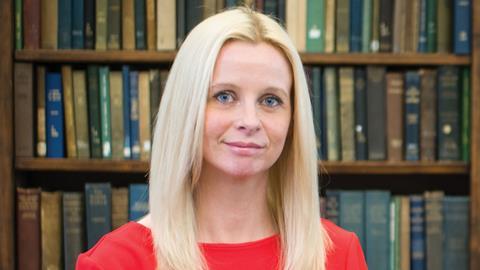Susan Shah, director and head of the Newcastle office, Vardags
I would never have guessed that I’d become a family lawyer. I was drawn to law because I was interested in debate and in language. But when I went to university to study business and law I was still uncertain about what I wanted to do.
After university I worked as a paralegal practising immigration law, representing clients in hearings opposite the Home Office. However, during my training contract I discovered a love for family law. I decided to specialise in family and worked under the supervision of a brilliant solicitor. Now I’ve got more than a decade behind me advising on divorce and family matters.
Family law was once seen as the slower or stuffier area of law, but now it is incredibly varied, challenging and international. Modern cases demand family lawyers be more flexible, internationally-minded and forensic. Family lawyers work closely with individual clients. You are handling the most important things in their lives. This makes it very personal.
A common feature of high-value proceedings is that they have an international element. In divorce proceedings this often equates to an arguable claim to more than one jurisdiction, which gives way either to a race to serve petition or a forum dispute. Sadly, it can also cause real difficulty with child arrangements. These situations can take their toll on everyone when the risk is that one parent’s relationship with the child is compromised.
The difficulty in children disputes and child relocation cases is that you have to weigh up the best interests of the child, which may not be what the child wants, with the potential damage to the resident parent should they be unable to relocate. Ultimately the child’s needs are paramount, but if the happiness or health or earning capacity of the child’s parent is severely affected by the court’s sanction then that in itself may affect the child, too.
It is often a fine balancing exercise and has to be considered on a case-by-case basis, with very honest advice being given. People have to remember they need to work out how to co-parent for many years after any separation. With children cases it is very important to look at not just winning a particular battle, but looking to see if, essentially, both parties can, in their own way, win the war.
I’ve had a few high-profile clients and these cases throw up a variety of unique challenges. I recently represented a client who sought to leave the country with her child to start a new life after experiencing an awful relationship with her ex-partner. That application took so much time, work and energy, but it was an absolute pleasure to assist them.
The best part of my job is being able to help and make a difference in people’s lives. At a time when they are experiencing one of the most difficult periods, helping them make plans for the future both for themselves and their children is really rewarding.
The one change in family law that I hope to see is no-fault divorce. It is high time for adults to be permitted to separate amicably and with dignity. Not to mention the fact that couples with children will undoubtedly be able to co-parent more successfully if they are not made to attribute blame for the relationship breakdown in court documents.
































No comments yet